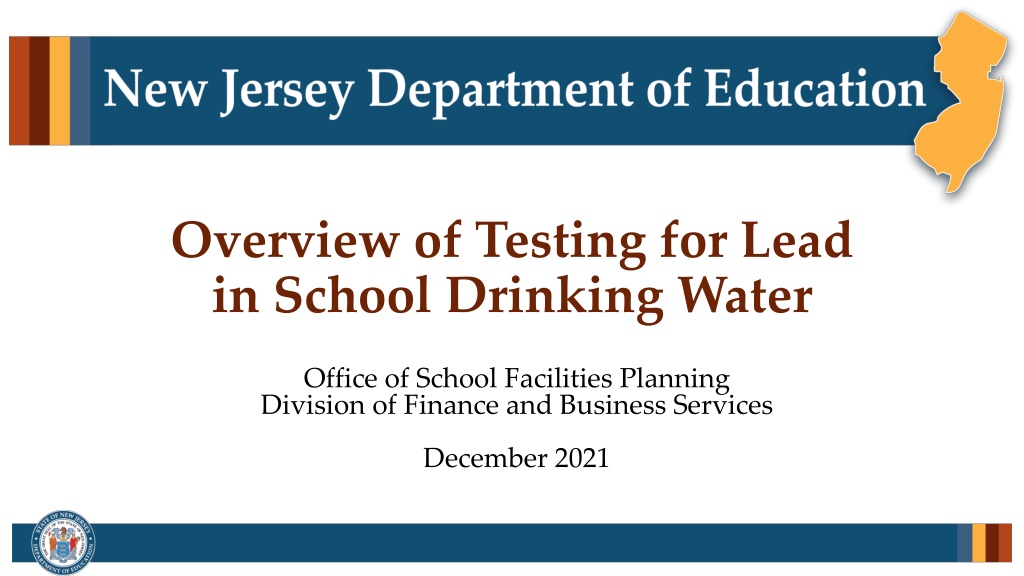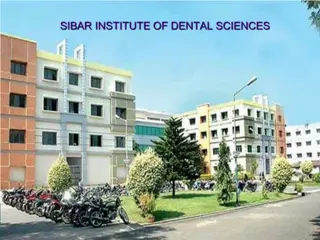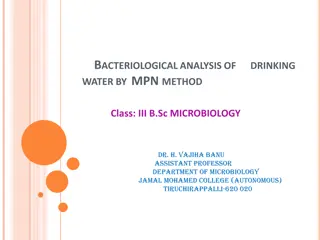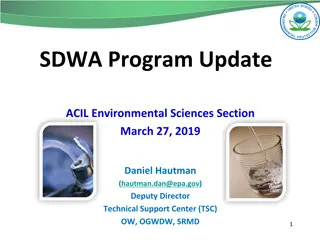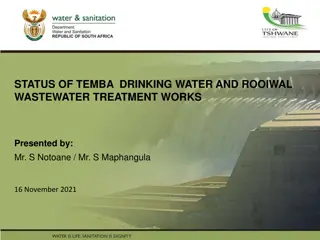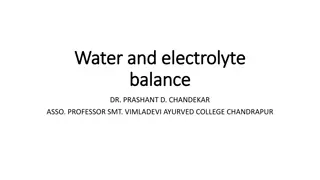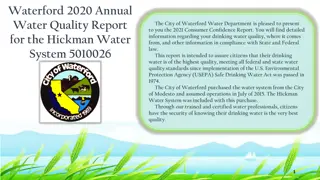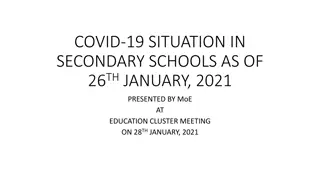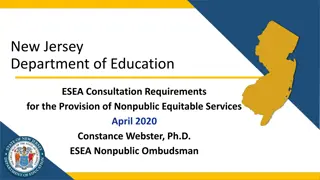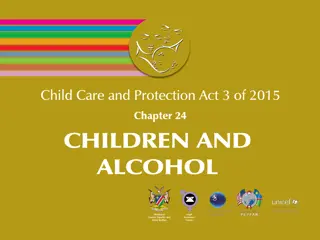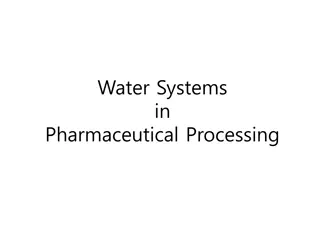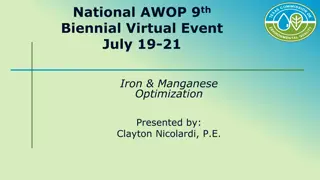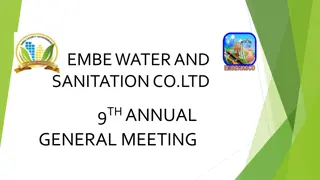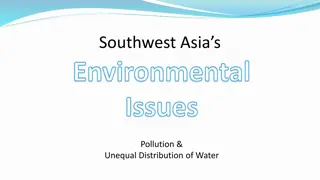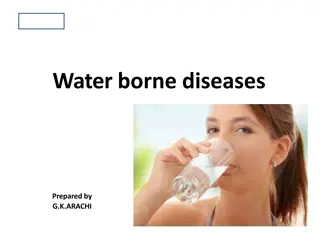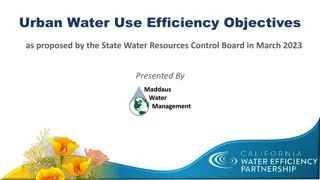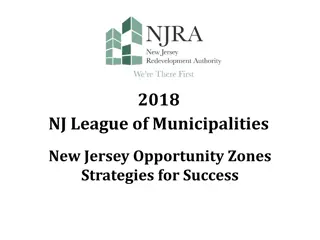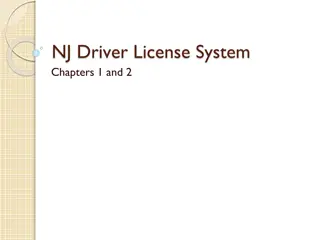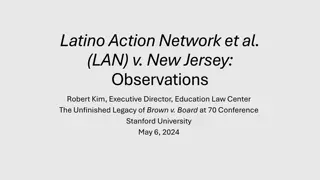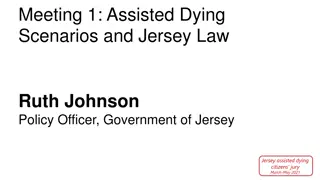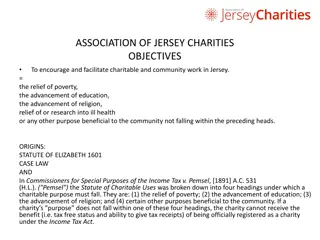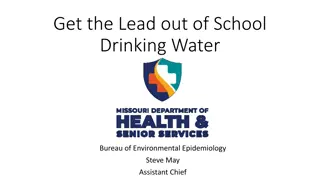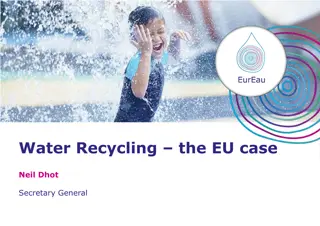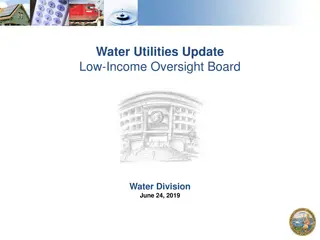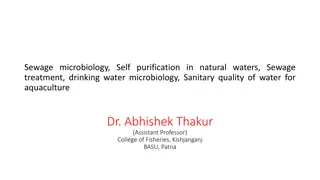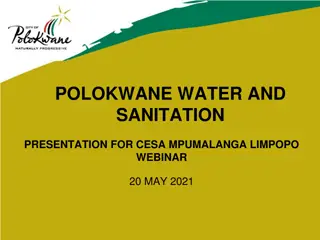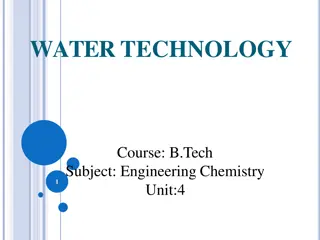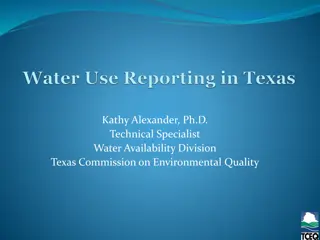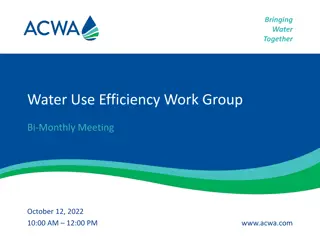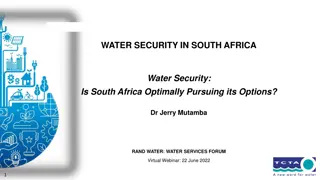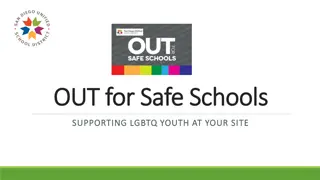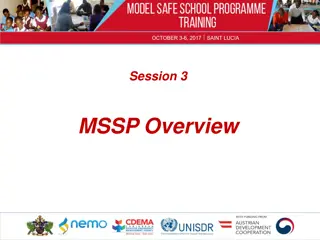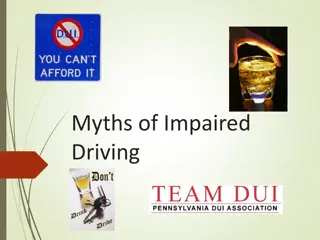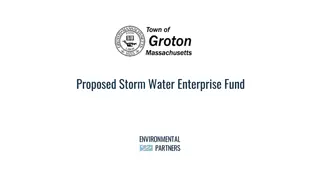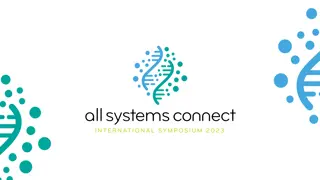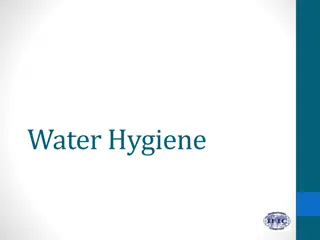Ensuring Safe Drinking Water in New Jersey Schools
Highlighting the importance of testing for lead in school drinking water, this overview covers NJDOE regulations, sources of lead contamination, federal drinking water regulations, and NJDOE requirements for testing. Lead exposure poses serious health risks, especially to children and pregnant women, making regular testing necessary to safeguard public health in educational settings.
Download Presentation

Please find below an Image/Link to download the presentation.
The content on the website is provided AS IS for your information and personal use only. It may not be sold, licensed, or shared on other websites without obtaining consent from the author. Download presentation by click this link. If you encounter any issues during the download, it is possible that the publisher has removed the file from their server.
E N D
Presentation Transcript
Overview of Testing for Lead in School Drinking Water Office of School Facilities Planning Division of Finance and Business Services December 2021
NJDOE Regulations N.J.A.C. 6A:26-12.4 Safe Drinking Water (July 13, 2016) requires testing in all drinking water outlets. Initial testing completed by July 13, 2017 Testing required beginning on July 1, 2021 and completed by June 30, 2022. o Subsequently from July 1, 2024 to June 30, 2025 Testing required after any plumbing repairs or new construction https://www.nj.gov/education/lead/ 2
Why Testing is Important Lead is a toxic metal that is harmful to human health. Children and pregnant women most susceptible Reduced IQ and attention span, learning disabilities, impaired growth and hyperactivity No safe blood level in children (EPA and CDC) Affects almost every organ and system in the body https://www.cdc.gov/nceh/lead/ 4
Sources of Lead in Drinking Water Lead in drinking water is typically from the following: Lead piping Lead solder (used until 1988) Fittings, valves and Fountains and faucets Note: Requirement of lead free plumbing changed from 8% to 0.25% (weighted average) in 2014. Testing is the best way to find out if lead is in the drinking water! 5
Federal Drinking Water Regulations Safe Drinking Water Act (SDWA) Lead Ban (1986) - lead free Lead Contamination Control Act (LCCA) (1988) Lead and Copper Rule (1991) Reduction of Lead in Drinking Water Act (2011) USEPA 3Ts for Reducing Lead in Drinking Water in Schools: https://www.epa.gov/ground-water-and-drinking-water/3ts- reducing-lead-drinking-water 6
NJDOE Requirements What is required from state funded childcare centers? 7
NJDOE Regulations Who is required to test for lead in drinking water? All New Jersey public school districts; Charter schools; Renaissance schools; Jointure commissions; Educational services commissions; Approved Private Schools for Students with Disabilities; State Funded Early Childhood Centers; and Receiving schools as defined by N.J.A.C. 6A:14:7.1(a) 8
State Funded Childhood Centers How to schedule lead testing for drinking water? NJDCF will be in contact with early childcare facilities. If the center has not yet been contacted by representatives from NJDCF, reach out using the email address below. 2021-2022 Testing is being funded through NJDCF Water Infrastructure Improvements for the Nation (WIIN) Act grant For more information email NJDCF s Office of Licensing (OOL) at DCF.CCLEnvironmental@dcf.nj.gov 9
Statement of Assurance (SOA) By June 30th of every year, state funded childcare centers must submit an SOA to the NJDOE affirming: 1. Testing for lead in drinking water was completed (if during a testing year); 2. Test results are posted on the center s or school district s website; 3. Notifications were provided as appropriate; The NJDOE must be notified if any sample exceeds the action level of 15 ppb. 4. Alternate drinking water is provided if the lead sampling exceeds the action level (15 ppb). 10
Where are the SOAs found? On the NJDOE website: Statements of Assurance (nj.gov) 11
Exemption from lead testing Exempt if no drinking water outlets are used for consumption or for food preparation Must submit an exemption application (NJDOE Exempt from Drinking Water Testing Application). Our office reviews the application and sends an approval letter. Approval letters must be available on the center s website. Must reapply for an exemption, or begin testing, every designated Statewide testing year. An SOA is required to be submitted by June 30th of each year. 15
Important Links 1. New Jersey Department of Education (NJDOE) Testing for Lead in Drinking Water: https://www.nj.gov/education/lead/ 2. Questions or comments for NJDOE: email leadtesting@doe.nj.gov 3. New Jersey Department of Environmental Protection (NDEP) Guidance Documents: https://www.state.nj.us/dep/watersupply/schools.htm 16
Thank You! New Jersey Department of Education: nj.gov/education Brian Salvo Environmental Scientist 3 Office of School Facilities Planning New Jersey Department of Education Louisa Soto Government Representative 2 Field Support and Services New Jersey Department of Education Contact at leadtesting@doe.nj.gov Follow Us! Facebook: @njdeptofed Twitter: Instagram: @NewJerseyDoe @NewJerseyDOE 17
